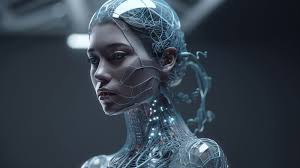The rapid advancement of technology raises a pivotal question: Can AI surpass human intelligence? This inquiry is not just about computational speed or data processing capabilities, but also encompasses creativity, problem-solving, and emotional understanding.
Defining Intelligence: More Than Just Processing Power
When assessing whether AI can surpass humans, it is crucial to define what "intelligence" means. Human intelligence is a complex blend of cognitive abilities, emotional depth, social understanding, and creative thought. AI, on the other hand, primarily excels in processing information at speeds unattainable by humans and executing tasks with precision across vast datasets.
For instance, in pure data processing and pattern recognition, AI has already demonstrated capabilities that far exceed human abilities. AI systems can analyze complex data sets in fields like genomics and climate modeling much faster and more accurately than humans. AI algorithms have also mastered games like chess and Go, outperforming the world’s top players by leveraging thousands of years of collective human experience within days.
Measuring AI's Cognitive Capabilities
Studies show that AI's cognitive capabilities are rapidly advancing. For example, recent advancements in natural language processing have enabled AI systems to perform at or above human levels on certain standardized tests. An AI developed by researchers scored in the 90th percentile on a reading comprehension test, surpassing the average human score significantly.
However, when it comes to creative problem-solving and understanding nuanced human emotions, AI still trails behind. Emotional intelligence, which involves empathy, social skills, and self-awareness, is inherently linked to human experiences and cannot be easily quantified or replicated by AI.

AI in Decision-Making and Innovation
AI's role in decision-making scenarios often highlights its limitations compared to human intelligence. In strategic settings that require negotiation, persuasion, or ethical considerations, human intelligence remains superior. Humans can understand subtleties and apply ethical reasoning in ways that AI cannot currently replicate.
Despite these limitations, AI has contributed significantly to innovation, particularly in streamlining operations and enhancing data-driven decision-making. For example, in the medical field, AI tools assist in diagnosing diseases by identifying patterns invisible to the human eye, improving diagnostic accuracy and patient outcomes.
Explore More at AI or Human
For those interested in exploring the depth and breadth of AI’s capabilities versus human intelligence, a visit to AI or human provides further insights and detailed comparisons.
AI and Human Collaboration: The Path Forward
The idea that AI might one day completely surpass human intelligence in all areas remains speculative and contingent upon future advancements. Currently, the most effective applications of AI involve collaboration with humans, combining the speed and accuracy of AI with the creative and emotional capacities of humans.
AI's potential to surpass human intelligence in specific tasks is undeniable, yet it is unlikely to replace the comprehensive abilities that constitute human intelligence soon. Instead, AI's continued development will more likely augment human capabilities, leading to a synergistic relationship where both AI and humans contribute their strengths to solve complex problems. This partnership approach maximizes the benefits of AI while leveraging human intelligence's unique aspects.